Must-read books about code quality
2023.01.03
Having the ability to write quality code is essential for your professional success. The importance of well-written code cannot be overstated: it is easier to read and maintain, leading to increased productivity and reduced costs for businesses. In this article, I will share my favorite code quality books that have helped me improve my skills and learn best practices for writing clean, efficient, and maintainable code. These books are widely known, many of the principles from them are now universally applied, and I believe they have the potential to benefit developers of all skill levels.
Refactoring: Improving the Design of Existing Code
Authors: Martin Fowler, Don Roberts, John Brant, William Opdyke, Kent Beck
First published: 2000
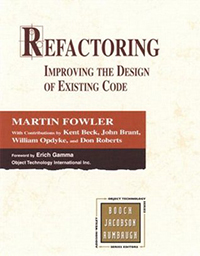
Refactoring is one of the main skills every developer should learn. This book describes what it is, how to do it, and the main types of refactoring.
Doing refactoring regularly is not only useful to increase the productivity of working on the code, but it is also very pleasant: refactoring leaves behind satisfaction, the feeling that the code has become much more readable and clean.
I highly recommend this book.
Design Patterns: Elements of Reusable Object-Oriented Software
Authors: Erich Gamma, Richard Helm, Ralph Johnson, John Vlissides
First published: 1994
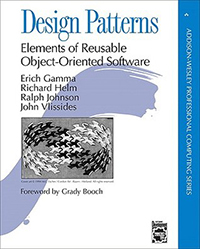
Knowing patterns is worthwhile not only because they make design easier, but also because they provide developers with a common language and set of standard solutions to common design problems. They help you think about design problems in a more structured way.
The Design Patterns book, like Refactoring, is not so much a tutorial as it is a catalog that can be consulted regularly while you work.
Code Complete
Author: Steve McConnell
First published: 1993
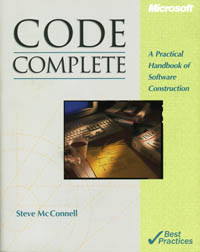
It’s hard to imagine a list of books on writing high-quality code without Code Complete. This is a monumental work that covers all aspects of programming, from tips on self-documenting code, to recommendations on how best to use the if statement.
The book is voluminous, but nevertheless I recommend everyone to read at least those parts that you will find necessary.
The Pragmatic Programmer: From Journeyman to Master
Authors: Andy Hunt, Dave Thomas
First published: 1999
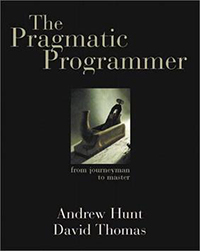
Definitely my favorite book on this list. The Pragmatic Programmer contains high-level advice, general principles, and wise metaphors that you yourself can apply in your work. For example, it was this book that introduced the DRY (Don’t Repeat Yourself) principle.
Every piece of advice in this book is worth its weight in gold, and I highly recommend that all developers read it several times.
Extreme Programming Explained: Embrace Change
Author: Kent Beck
First published: 1999
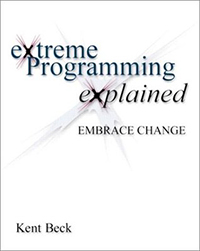
Extreme Programming is a methodology, so unlike the other books on this list, this book also deals with project management. Nevertheless, it contains a large number of tips and techniques that can and should be applied to improve code quality. Therefore, I advise you to read Extreme Programming regardless of whether this methodology or its individual parts are used in your workplace.
Test-Driven Development: By Example
Author: Kent Beck
First published: 2002

Test Driven Development (TDD) is a brilliant approach in its simplicity and efficiency that solves a huge number of problems simultaneously: it reduces human factor, increases test coverage, speeds up and simplifies development due to your confidence in the code, the confidence that your changes will not break anything and the code will work; it allows you to make more convenient programming interfaces and structures in your head the idea of what your code will be like.
I strongly recommend that you read this book and try to apply its advice to your work for a while – you won’t regret it.
Disclaimer: All book covers belong to their respective artists or publishers. Here low-resolution versions of them are used on a fair-use basis without any commercial purpose. If I am wrong, you can contact me.